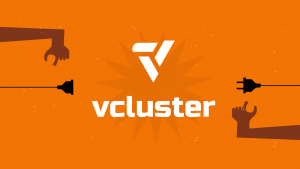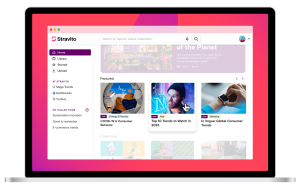Fusion-io Falls Victim to its Own Success. Apple + Facebook Will Return as Top Clients
![]() Fusion-io shares plummeted as much as 21 percent on the stock exchange yesterday after it reported financial results for the second quarter of 2012.
Fusion-io shares plummeted as much as 21 percent on the stock exchange yesterday after it reported financial results for the second quarter of 2012.
Fusion-io generated $120.6 million in Q2, a 43 percent increase from a year earlier and a quarter million bucks more than what Wall Street expected. Net profit was $1.7 million, compared with a loss of $5.7 million in the second quarter of 2011, while earnings rose to 13 cents per share (bolting ahead of the eight cents that analysts predicted).
Margins grew by over 10 percent to 61.8 percent from 51 percent in the same period 12 months ago.
Save the worst for last
.
Fusion-io delivered nothing but good news, right until the point management delivered its revenue projection: $420 million and $440 million for the full year, compared with $530 million expected by analysts polled by Thomson Reuter. That’s when the stock started to tumble.
The flash storage maker cited lowered demand from Facebook and Apple, which presently account for 51 percent of its revenue. AllThingsD’s Arik Hesseldahl got a hold of Fusion-io’s CEO, who did his best to explain things as they are.
“I just got off the phone with CEO David Flynn, who told me that having two customers account for so much of its business was always a risk. But? When Fusion first IPO’d in 2011, Apple and Facebook accounted for 70 percent of sales, so it could have been worse. “We knew there was going to be some risk with customer concentration,” he said. “Over time the concentration will work itself out.”
Not a bad omen
.
A known risk, for sure. But this may not be the bad omen some investors believe it to be, especially as Fusion-io has demonstrated significant growth for the quarter. Wikibon co-founder and chief analyst explains:
“It’s a classic case of a company falling victim to its huge success. here’s what’s happening. Fusion-io has been consistently beating its numbers. Management is always conservative in its statements and always makes sure to convey the risks. But Wall Street analysts want to get ahead of the curve and predict better than expected growth – especially for a growth company. Most people are bulls. It’s understandable, but trees don’t grow to the moon. Expectations get inflated, people get out over their skis and when companies miss it’s like the world is coming to an end.
“I don’t think this signals any kind of fundamental change in Fusion-io’s business. On the contrary. We’ve always known that Fusion-io was exposed to Facebook and Apple buying cycles. This wasn’t a matter of if but when. The only hope was that the Facebook/Apple buying cycle wouldn’t turn down beforeFusion was able to broaden its customer base. But that didn’t happen enough to mask the order cycle. Not surprising at all. I would predict over the next couple of quarters Apple and Facebook demand will come back. It’s cyclical, especially with two large buyers such as those two.
Having said that, Fusion must continue to expand it’s channel, it’s product line and evolve its business model.
The key to me in the numbers is Fusion’s revenue grew 40 percent. That’s huge. This is still a growth company with very unique IP and an enormous lead over the competition in a huge market. To me, Fusion is a long term play with lots of legs.”
Fusion-io’s stock has made a steady recovery in the past 24 hours, but it’s still down by about 15 percent.
The vendor’s dependency on its top clients is a problem, but one that hardly diminishes its leadership position in the flash market. Seagate recently invested $40 million in an SSD startup just so it could gain a foothold the industry. Both Seagate and Virident are “indicators that the broader market is surging and demand will be high for some time,” SiliconAngle founder John Furrier says. But as more startups find the funding to break into the flash market, the question remains whether or not Fusion-io’s product is the issue if two high profile clients have begun to pull back their support.
A message from John Furrier, co-founder of SiliconANGLE:
Your vote of support is important to us and it helps us keep the content FREE.
One click below supports our mission to provide free, deep, and relevant content.
Join our community on YouTube
Join the community that includes more than 15,000 #CubeAlumni experts, including Amazon.com CEO Andy Jassy, Dell Technologies founder and CEO Michael Dell, Intel CEO Pat Gelsinger, and many more luminaries and experts.
THANK YOU













